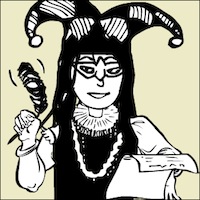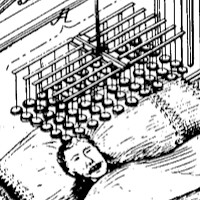Uncle Tom's Cabin (March 20, 1852)

Few texts have great impact upon society—and those that do are typically historical documents. In the United States, however, during the mid-1800’s, one woman decided to challenge the government in the form of a story—the story of a man named Uncle Remus. Harriet Beecher Stowe changed the face of American history proving the adage “the pen is mightier than the sword.”
In 1850, the Federal government passed the “Fugitive Slave Act.” This law stated that anyone suspected of being a former slave could be arrested and returned to his master, without warrant or trial. The suspected fugitive could not speak on his own behalf, nor was the suspected slave permitted to have a trial. Also, any federal marshals that did not comply to this law could be fined up to $1,000.
Problems that arose from the passage of this law included the enslavement of freed Blacks as well as the re-enslavement of those who had escaped. Solomon Northup was one such free man that was accused by a slave trader of being an escaped slave. The end result of the passage of the law was the development of the Underground Railroad—an act of civil disobedience.
After reading the memoirs of former slave, Josiah Henson, Harriet Beecher Stowe decided to make a change for the better. She took up a pen and began to write. Inspired by Hanson’s autobiography, Stowe began work on a book that changed a Nation. In 1851, snippets from “Uncle Tom” began to appear in newspapers and in 1852, Uncle Tom’s Cabin was published.
The book was instantly popular. It depicted life as a slave, establishing the stereotypes that, today, unfortunately obscure the historical significance of the book. Uncle Tom’s Cabin became the number one best selling novel of the 19th Century. The book spawned stage plays and even the Disney movie, Song of the South. Stowe’s book—based on abolition and a call to action to change the state of the nation—helped not only to change the laws, but also helped influence the bloodiest war in American history, the Civil War. President Lincoln has been quoted as saying “so this is the little lady that started the big war” upon their first meeting.
After the success of Stowe’s novel and her admission of Josiah Henson’s autobiography as her source of inspiration, Henson republished his memoirs as The Memoirs of Uncle Tom. If it were not for the tenacity and bravado of those men and women who actively supported the abolition movement, slavery may have continued well into the 20th Century. Now in the 21st Century, we tend to forget just from where we’ve come. We tend towards the realm of “political correctness” rather than the true “history” of the nation. By banning books, plays, and movies such as Uncle Tom’s Cabin, we deprive our descendants of the knowledge and emotions of a dark time in our Nation’s history. How can they truly appreciate what they have if they do not know what they were denied?
In 1850, the Federal government passed the “Fugitive Slave Act.” This law stated that anyone suspected of being a former slave could be arrested and returned to his master, without warrant or trial. The suspected fugitive could not speak on his own behalf, nor was the suspected slave permitted to have a trial. Also, any federal marshals that did not comply to this law could be fined up to $1,000.
Problems that arose from the passage of this law included the enslavement of freed Blacks as well as the re-enslavement of those who had escaped. Solomon Northup was one such free man that was accused by a slave trader of being an escaped slave. The end result of the passage of the law was the development of the Underground Railroad—an act of civil disobedience.
After reading the memoirs of former slave, Josiah Henson, Harriet Beecher Stowe decided to make a change for the better. She took up a pen and began to write. Inspired by Hanson’s autobiography, Stowe began work on a book that changed a Nation. In 1851, snippets from “Uncle Tom” began to appear in newspapers and in 1852, Uncle Tom’s Cabin was published.
The book was instantly popular. It depicted life as a slave, establishing the stereotypes that, today, unfortunately obscure the historical significance of the book. Uncle Tom’s Cabin became the number one best selling novel of the 19th Century. The book spawned stage plays and even the Disney movie, Song of the South. Stowe’s book—based on abolition and a call to action to change the state of the nation—helped not only to change the laws, but also helped influence the bloodiest war in American history, the Civil War. President Lincoln has been quoted as saying “so this is the little lady that started the big war” upon their first meeting.
After the success of Stowe’s novel and her admission of Josiah Henson’s autobiography as her source of inspiration, Henson republished his memoirs as The Memoirs of Uncle Tom. If it were not for the tenacity and bravado of those men and women who actively supported the abolition movement, slavery may have continued well into the 20th Century. Now in the 21st Century, we tend to forget just from where we’ve come. We tend towards the realm of “political correctness” rather than the true “history” of the nation. By banning books, plays, and movies such as Uncle Tom’s Cabin, we deprive our descendants of the knowledge and emotions of a dark time in our Nation’s history. How can they truly appreciate what they have if they do not know what they were denied?
You Should Also Read:
Timeline for Uncle Tom's Cabin

Related Articles
Editor's Picks Articles
Top Ten Articles
Previous Features
Site Map
Content copyright © 2023 by Christa Mackey. All rights reserved.
This content was written by Christa Mackey. If you wish to use this content in any manner, you need written permission. Contact Lane Graciano for details.







